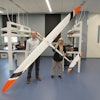It’s a scandal that’s persisted for so long – and with such far-reaching consequences – that’s it’s earned its own name: Dieselgate. See, it’s even got the Watergate “gate” on the end, so you know they mean business.
And it’s not just Volkswagen corporate that’s dealt with the fallout, but the company’s employees have been through the wringer as regulators attempt to place blame on the actors who knowingly designed emissions cheat devices into the diesel vehicles the company produced. In a nearly unbelievable twist, two VW board members were actually arrested and held for months in jail for their roles in hampering the investigation – including Audi brand’s CEO Rupert Stadler.
But one high ranking engineer within Volkswagen has a bone to pick with the investigation: after being suspended in 2015 and then ultimately fired, this manager says they got the wrong guy.
He is being identified only as Joern K due to strict German privacy laws, but this former VW employee is said to have led the diesel-engine development for the carmaker… but that doesn’t tell the whole story because, in fact, Joern K. didn’t work on the engine that was at the center of dieselgate – the EA 189. According to his lawyer, he actually worked on the engine model that followed it.
Joern had been with Volkswagen since 1995 and just wants his job back. His lawyer is asking a labor court to force Volkswagen to explain why he was fired nearly three years after he was put on suspension, during which he still received an enviable annual salary of $560,000. In August, he was among several managers fired after the company gained access to the files of German prosecutors.
But Joern’s attorney, Ulrich Weber, says there was nothing incriminating about his client in those files. No charges were filed against him in the US, despite being questioned by the U.S. Justice Department and no charges are expected in Germany either.
But… the carmaker’s in-house counsel has hinted at the possible reasoning for Joern’s termination, saying the company expects managers to “flag” wrongdoing that they become aware of, and that they will specific the reason for Joern’s dismissal shortly.
So perhaps he was just an unfortunate witness to the tampering who chose to keep his mouth shut, though all is, perhaps, not lost. An article in Automotive News points out that German labor law carries strict requirements on when and how companies can fire employees, and this is sometimes incongruous with the demands of U.S. regulators, who seek terminations as a way of identifying accountability.
In some past cases, like “when Commerzbank AG fired four employees in 2016 on the request of a New York regulator,” said Auto News, “all of them sued and won back their jobs.”






















